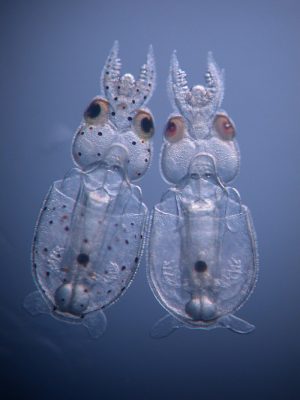June 22, 2020 - Anna Zarra Aldrich '20 (CLAS), Office of the Vice President for Research
University of Connecticut professor of molecular and cell biology James Cole is working on identifying new therapeutics for COVID-19.
Through a collaboration with Atomwise, a California-based company which uses artificial intelligence to advance small molecule drug discovery, Cole is one of the 15 researchers looking at different coronavirus protein targets for COVID-19 treatment.
Cole is focusing on the NSP15/EndoU ribonuclease enzyme the COVID-19 virus needs to replicate as well as degrade viral RNA to hide it from host cell defenses. Cole is looking for a molecule that can inhibit the enzyme and thus inhibit replication of coronaviruses.
“The virus and the host carry out this war,” Cole says. “The virus has to evade the host’s innate immunity response while the host is trying to stop the virus from replicating.”
By inhibiting this enzyme, the body’s innate immune system would prevent the virus from replicating.
Atomwise is connecting researchers around the globe to their Artificial Intelligence Molecular Screen (AIMS) program. AtomNet, the company’s patented AI screening technology, screens millions of molecules to find those which have the highest probability of being useful for treatment.
Several other researchers at UConn have been recipients of AIMS Awards from Atomwise in the past.
AtomNet uses 3D models of various protein drug targets to identify molecules that may bind to them. Atomwise then sends these molecules to researchers who conduct experiments to find compounds that bind or inhibit drug targets.
Earlier this year, scientists published the structure of the NSP15/EndoU enzyme from SARS-CoV-2, the virus responsible for COVID-19, providing the basis for Atomwise’s analysis. Atomwise will search through its database to identify molecules which may bind to the surface of NSP15/EndoU and could potentially be used for drug development.
While there are many potential targets for COVID-19 treatment, NSP15/EndoU is particularly attractive because it is necessary for SARS-CoV-2 replication and is highly conserved among coronaviruses. This means this enzyme is very similar in all coronaviruses.
Successfully targeting NSP15/EndoU would block the virus’ ability to replicate without interfering with normal human cell function.
“There’s no close analog in humans, so it’s unlikely to inhibit things we don’t want it to,” Cole says.
This research may also have ramifications for other coronaviruses which are responsible for other illnesses including SARS and MERS as well as new, emerging coronaviruses.
In addition to partnering with Atomwise for virtual screening with AtomNet, Cole is utilizing UConn’s high-performance computer cluster and the Schrödinger Software Suite to perform additional molecule screenings.
Cole studies how a variety of viral pathogens interact with the host’s innate immune pathways, positioning him well to tackle the challenges presented by COVID-19.
“When the pandemic hit, I was beginning to think we can help with this,” Cole says.
Cole has applied for funding from the National Institutes of Health for this two-year research venture.
“It’s an exciting and new therapeutic target,” Cole says. “It’s a particularly good target and of scientific interest to me.”
Cole holds a Ph.D. from the University of California. He completed his postdoctoral training at Stanford University. His research focuses on using biochemical, biophysical and structural methods to define the key macromolecular interactions that regulate important biological processes, specifically the innate immunity pathway for defense against viral infection.
https://today.uconn.edu/school-stories/atomwise-partnership-enables-uconn-researcher-investigate-covid-19-drug-target/

